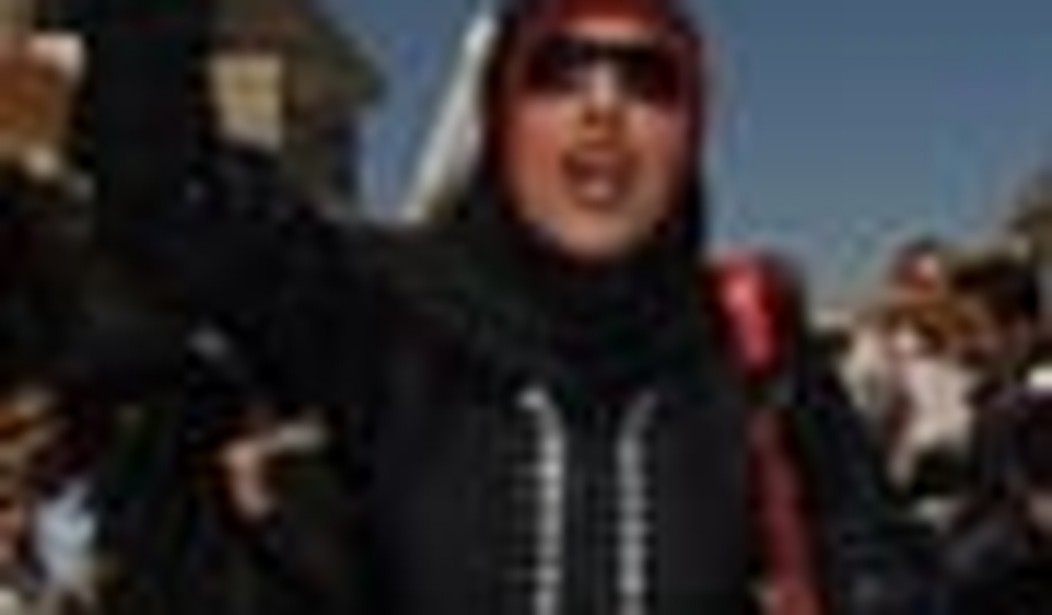As Nobel laureate Tawakkol Karman arrived in New York Tuesday, twelve protesters lay dead in Yemen’s capital Sana’a. Medics reported 70 more were shot by roof top snipers. The Saleh regime’s latest bloody rampage began Saturday when the UN Security Council’s toothless draft resolution became public.
Ms. Karman had learned of her Nobel Peace Prize in a tent. Since February she and millions lived in protest squares across the nation demanding democracy. The Nobel was a grand moment for Yemen and Yemeni women.
For them, the award recognized the Yemeni Youth Revolution’s commitment to peace. The movement seeks to depose the Sana’a regime and establish a civil state and parliamentary system to empower minorities, independents, and small parties.
Month after month, unarmed protesters marched in 17 of 21 provinces. State security forces killed hundreds and shot nearly 20,000.
On Swedish radio, one ecstatic Yemeni blogger responded to the Nobel announcement with, “In your face, Saleh!”
Coming days after a U.S. drone strike killed al-Qaeda operative Anwar al Awlaki, Yemenis felt vindicated that the dignified nation was finally recognized as more than a terrorist safe haven.
However the Nobel Committee’s political agenda soon became clear. Chairman Thorbjoern Jagland highlighted Karman’s membership in the Islah party, which contains Muslim Brotherhood members. Jagland asserted the Muslim Brotherhood, which condones terrorist violence, is “an important part” of the Arab Spring.
Islah, the Islamic Congregation for Reform, encompasses tribal elements, political and Islamic reformists, progressive students, anti-regime activists, Muslim Brotherhood and more fundamentalist Salafis.
Jagland’s remarks set off alarm bells in western conservative circles. Some commentators noted that Sheik Abdelmajid al Zindani was a founding member of Islah in 1990. Al Zindani is a UN designated terrorist financier, a charge he rejects. He publicly advocates jihadist violence. But al Zindani should be hung around President Ali Saleh’s neck, not Tawakkol Karman’s.
In 2004, Islah joined with the Yemeni Socialist Party (YSP), Ba’athists, Nasserites, and two small Shia parties to form the opposition Joint Meeting Parties (JMP). In 2006, when the JMP’s presidential candidate was Faisal bin Shamlan, al Zindani campaigned for Saleh, who announced his candidacy from al Zindani’s hard-line al Iman University. Saleh never froze al Zindani’s banks accounts as mandated by the UN.
Observers noted the Muslim Brotherhood tweeted that its member, Ms. Karman, had won the Nobel. But remarks by Mohammed al Zindani, son of Abdelmajid, were less well publicized. He said the Nobel Peace Prize is given to “Jews and their collaborators,” who undermine Muslims, promote mixing of the genders, and hatch plots against female modesty.
In 2008, Ms. Karman was among the first women elected to Islah’s Consultative Assembly, and promptly angered hardliners by pushing for a minimum marriage age. Many girls are married by 12, and Yemen is ranked lowest globally in gender equality.
When al Zindani’s short lived Virtue and Vice Committee issued a fatwa against women in society, Karman responded, “Women’s political participation is a right we have by the constitution, by law. … A fatwa, any fatwa, cannot affect or change these rights.”
One western scholar wondered how the Nobel winner really feels about al-Qaeda. In 2007, Karman led the first public protest in Yemen against al-Qaeda after a terror attack killed eight tourists. In August, her hometown, Taiz, held another anti al-Qaeda protest and seminar.
In highlighting Karman’s party membership, the Nobel Committee also failed to grasp that Yemeni revolutionaries, with Karman at the helm, consider the opposition political parties as ineffectual, corrupt, and part of the problem. Protesters wholeheartedly reject a proposal endorsed by the U.S. to form a unity government of Islah, the Yemeni Socialist Party, and the ruling General People’s Congress.
Karman’s NGO, Women Journalists Without Chains (WJWC), works to “promote development by encouraging independent thought, advocating women and children’s rights, adopting youth activities and working towards a transparent and just rule.” A vocal and unrelenting advocate for imprisoned journalists and banned newspapers, Karman organized weekly protests for two years, setting the stage for the popular uprising.
During the Sa’ada war, WJWC and other civil society organizations protested the arbitrary arrests of Shia, denouncing “incitement against a specific group of people because of their religious beliefs.” Civil society took a similar stand with regard to Yemen’s Jewish citizens. As head of Yemeni Journalists Against Corruption, Karman documented mass embezzlement and government corruption. During the cartoon controversy, she published, “Burning embassies is not the way.”
Because of her work, Ms. Karman was physically attacked, arrested, threatened , smeared in state newspapers, and criticized in Islah’s mosques. Now she is facing questions upon her arrival in the U.S. because of extremists in her political party that she is regularly at odds with.
Those questioning Ms. Karman’s beliefs might do well to consider the positive impact of her work and the courage necessary to stand in Yemen as a woman and proclaim freedom as a birthright. These scholars may do better exploring broader issues like the long standing democratic consensus at the heart of the Yemeni revolution, President Saleh’s payments to al-Qaeda, and the Sana’a regime’s expansive criminal enterprises including gun running, currency forgery, drug smuggling, and, sadly, human trafficking.









Join the conversation as a VIP Member